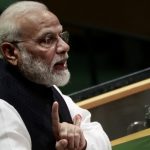Our erroneous health trajectory and poor health infrastructure have been exposed by the pandemic. It’s time that governments start thinking and planning about how to rectify the wrong path that we have taken
Many years ago, on a train journey from Mumbai to Wardha, to appear for the entrance exam to the Mahatma Gandhi Institute of Medical Sciences in Sevagram (India’s first rural medical college), I hurriedly read through a book on Gandhian thought, because it was a part of the exam curriculum. I did well in the examination, but chose not to join the college which was run by a board of Gandhian scholars and doctors. Instead, I chose the King Edward Memorial (KEM) Hospital in Mumbai. After spending 12 long years at KEM, I became a qualified super-specialist and then continued my supposedly stellar career path by eventually joining as a consultant at a ‘five-star’ private hospital, which primarily caters to the upper strata of the society and provides world-class care and results.
Unfortunately, India’s healthcare, too, followed a similar trajectory: it moved away from villages into the metros, from preventive and primary care to curative and tertiary care, and from the public sector to the private sector.
Today, as I reflect back, I wonder if joining the Gandhian institute would have been a more satisfying career choice. Also, had India decided to develop not just one, but hundreds of such rural (Gandhian) medical colleges and hospitals in the villages and small towns of our country in the 1960s and 70s (the Sevagram-Wardha medical college was started in 1969), the whole healthcare pyramid in India would’ve been the right way up, and not turned upside down, as it is today. If Gandhiji would’ve lived longer, it may have actually happened.
Want to publish your own articles on DistilINFO Publications?
Send us an email, we will get in touch with you.
Today, our erroneous health trajectory and our poor health infrastructure have been thoroughly exposed by the Covid-19 pandemic. Now, eight months into the pandemic, as we are coming to terms with the virus, it’s time that governments must start thinking and planning about how to rectify the wrong path that we have taken. It is time for India’s healthcare to take a Gandhian turn, or shall I say, a U-turn.
The young Mohandas was eager to become a doctor, but his brother and father had nipped his desire in the bud – the reason being that Vaishnavas should have nothing to do with the dissection of dead bodies. So he went to England and studied Law. But even for the Barrister Gandhi, health –both personal and social – was of great importance. His life, principles and writings, hold many lessons about health and healthcare.
The first turn: From healthcare to health
The first Gandhian turn – that we as individuals as well as a nation – must take, is to move away from just thinking about healthcare, without thinking about health. Prioritising health over healthcare means living healthier lifestyles as individuals and as a society and enabling its citizens to lead such lifestyles. It also means prioritising preventive care over curative care and primary healthcare over tertiary care. Not just Gandhi, but recently even the dean of the Boston University School of Public Health, Dr Sandro Galea, in a live online dialogue about Indian healthcare, in the wake of the pandemic, pointed out the need for India and Indians to emphasise health over healthcare.
Gandhi was a short and lean man, but had a healthy disposition. Throughout his life, he was more than conscious about what and how much he ate, avoiding intoxicants and the need for regular exercise. An interesting example of his diet fanaticism was how during a serious illness, he refused to take cow’s milk (because of a vow he had taken to abstain from it due to ill-treatment of cows while milking them), and was then persuaded to take consume goat’s milk – which was much more expensive. That is probably why Sarojini Naidu once said to him, “How costly it is to keep you simple.” Gandhi, after a pause, had replied in a contemplative mood, “Yes, God will forgive me. I have to maintain my body in a healthy way so that I can carry on my mission.” Gandhiji was also a fitness freak, and walked nearly 18km every day for over 40 years. It has been estimated that he must’ve walked enough to go around the earth twice.
Source: Hindustan Times







